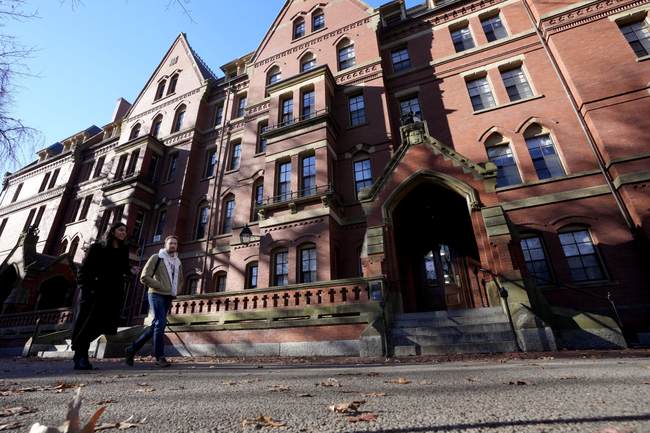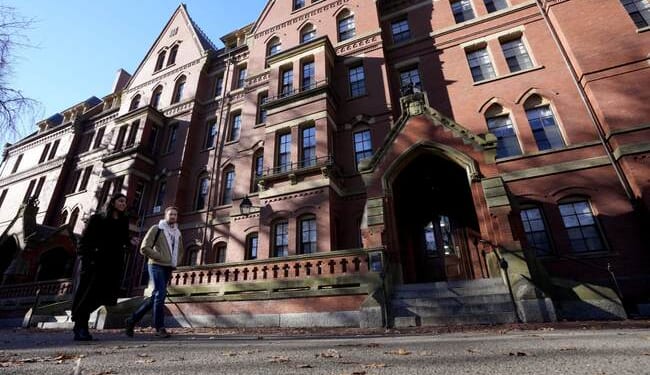
In a blow to the diversity lobby, Harvard and CalTech have both reinstated the requirement for an applicant to submit an SAT or ACT standardized test score to be considered for admission.
Harvard cited a study by Opportunity Insights that showed that standardized tests were much better at predicting success for poor and minority students than high school grades alone.
“Standardized tests are a means for all students, regardless of their background and life experience, to provide information that is predictive of success in college and beyond,” Hopi Hoekstra, dean of the faculty of arts and sciences at Harvard, said in a statement.
“In short, more information, especially such strongly predictive information, is valuable for identifying talent from across the socioeconomic range,” she added.
CalTech said in its statement that requiring standardized test scores reaffirmed the school’s “commitment as a community of scientists and engineers to using all relevant data in its decision-making processes.”
So what happened? The Supreme Court’s decision last June that reversed several precedents on race-based admissions played a big role in the decision to return to standardized test scores as a requirement. The SAT won’t be a determining factor in admissions, but it can no longer be ignored.
Chief Justice John Roberts wrote for the majority, “Many universities have for too long… concluded, wrongly, that the touchstone of an individual’s identity is not challenges bested, skills built, or lessons learned but the color of their skin. Our constitutional history does not tolerate that choice.”
Not much wiggle room in that statement.
Another possible reason is that applications were down at Harvard, although there were still 54,000 potential students to choose from.
Applications to Harvard were down by 5 percent this year, while those at many of its peer universities went up, suggesting that the recent turmoil may have dented its reputation. But it still received a staggering number of undergraduate applications — 54,008 — and admitted only 3.6 percent. Requiring test scores could make sorting through applications more manageable.
Critics of standardized tests have long raised concerns that the tests helped fuel inequality because some wealthier students raised their scores through high-priced tutoring. But recent studies have found that test scores help predict college grades, chances of graduation and post-college success, and that test scores are more reliable than high school grades, partly because of grade inflation in recent years.
Harvard is also considering a less radical president to replace Claudine Gay, whose congressional testimony allowing antisemitism at Harvard led to her resignation.
The provost, Alan Garber, was named interim president, while the dean of the law school, John Manning, became interim provost, the university’s second-highest administrative position. Mr. Manning is considered a strong potential candidate to replace Dr. Gay. His background stands out for his conservative associations, having clerked for the former Supreme Court justice Antonin Scalia.
In the current climate on campus, a return to test scores could be seen as a return to tradition. It also may address concerns of many parents that the college admissions process, especially in elite institutions, is inscrutable and disconnected from merit.
Indeed, seeing merit as “white privilege” or “racist” was going to destroy the notion of excellence in education and elsewhere. It’s good to at least get part way back to a merit-based admissions system. Perhaps this is a sign of the tide turning against the diversity radicals.












